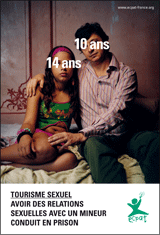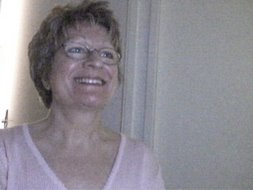
In the Blink of an Eye
After a devastating stroke, the author dictated this memoir using only his left eyelid
"This is the tongue of the dead man,'' Sylvia Plath wrote in ''Berck-Plage,'' her poem set in a French hospital complex by the Channel coast. ''How far he is now, his actions / Around him like livingroom furniture, like a decor.''
A year and a half ago, following a catastrophic stroke and weeks of deep coma in that same hospital, Jean-Dominique Bauby gradually ''surfaced'' into a new existence as a victim of ''locked-in syndrome,'' mentally alert but deprived of movement and speech. Just 44 years old, his body useless but still painful (''my hands, lying curled on the yellow sheets, are hurting, although I can't tell if they are burning hot or ice cold''), he was forced to recognize that his former life in Paris as the witty, high-living editor in chief of Elle magazine had become as unreachable as the books and trinkets across his hospital room, where he now lived ''like a hermit crab dug into his rock.''
His time ''as a perfectly functioning earthling'' ended, one might say, in the blink of an eye. But it was blinking -- that age-old image of heedless speed turned into literal, concentrated labor -- that saved Bauby from becoming just another object in the room. By moving his left eyelid in response to an alphabet rearranged according to the letters' frequency of use, Bauby managed to write a book as moving as Job's and as expansive, in its way, as any composed by the wheelchaired, boundless Stephen Hawking.
''It is a simple enough system,'' he explains. ''You read off the alphabet . . . until, with a blink of my eye, I stop you at the letter to be noted. The maneuver is repeated for the letters that follow, so that fairly soon you have a whole word.'' Fairly soon! Less soon when the amanuensis anticipates and makes mistakes: ''One day when, attempting to ask for my glasses (lunettes), I was asked what I wanted to do with the moon (lune).''
Bauby allows that his ''communication system disqualifies repartee,'' but it does beautiful service to all sorts of physical and emotional description. ''There comes a time,'' he explains, ''when the heaping up of calamities brings on uncontrollable nervous laughter,'' but in this strong, slim volume the author displays a writerly control equal to his honesty: ''One day . . . I can find it amusing, in my 45th year, to be cleaned up and turned over, to have my bottom wiped and swaddled like a newborn's. I even derive a guilty pleasure from this total lapse into infancy. But the next day, the same procedure seems to me unbearably sad, and a tear rolls down through the lather a nurse's aide spreads over my cheeks.'' There are scenes in Bauby's narrative -- his discovery, in a windowpane, that he is not just ''reduced to the existence of a jellyfish'' but ''also horrible to behold'' -- that one might be inclined to describe as unbearably sad, if ''unbearable,'' thanks to this book, were not a word one will never again use quite so loosely.
The diving bell of Bauby's title is his corporeal trap, the butterfly his imagination: ''There is so much to do. You can wander off in space or in time, set out for Tierra del Fuego or for King Midas's court.'' Childhood fantasies of war heroism alternate with elaborate dreams of cooking, in which his pantry is a previous lifetime's memories of smells, tastes and textures: ''You can sit down to a meal at any hour, with no fuss or ceremony. If it's a restaurant, no need to call ahead. . . . The boeuf bourguignon is tender, the boeuf en gelee translucent, the apricot pie possesses just the requisite tartness.'' It's as if he'd reversed the most famous moment in Proust and used memory to bring back the madeleine.
Calamity turns Bauby into a connoisseur of irony and eeriness. He recalls how, while visiting his aged father just days before the stroke, he stood near ''a black-and-white photo of myself on a miniature golf course. I was 11, my ears protruded and I looked like a somewhat simpleminded schoolboy.'' When, later, the elder Bauby sends this photo to the hospital, the author is puzzled until the picture is turned over and he sees that a cruel coincidence has been detected. ''In his strong, angular handwriting, Dad had simply noted: Berck-sur-Mer, April 1963.''
Shortly before the stroke, Bauby had begun to diet, not knowing he would lose 66 pounds in the next 20 weeks, and he had reread ''The Count of Monte Cristo,'' in which the elderly Noirtier de Villefort ''is literature's first -- and so far only -- case of locked-in syndrome.'' From his bed, Bauby ponders the way he's swapped circumstances with an old friend who spent ''several years in a darkened Beirut dungeon'' as a hostage of Hezbollah.
The author cultivates strong feelings, especially anger, to keep his spirit from atrophying along with his limbs. But despite occasional sarcastic eruptions, the book's tone, in Jeremy Leggatt's translation, is dominated by a sweet, even humorous, lyricism. Bauby notes with pleasure how, in his reordered alphabet, ''T and U, the tender components of tu . . . have not been separated,'' and he recounts his practical distribution of all the prayers coming his way: ''A woman I know enlisted a Cameroon holy man to procure me the goodwill of Africa's gods: I have assigned him my right eye. For my hearing problems I rely on the relationship between my devout mother-in-law and the monks of a Bordeaux brotherhood.'' Continuing pride in his fashionableness makes him insist that he do his drooling on his own cashmere instead of the hospital-issue jogging suit. If a certain sentimentality enters some of his imaginings, such as a fantasy reconstruction of the Empress Eugenie's visit to the hospital in 1864 (''I was so merry that I would willingly have risen and invited Eugenie to dance''), awe at its very rendition will keep most readers from condemning it too harshly.
During the book's composition, Bauby's long-term prognosis was uncertain. He was thought likely to experience some improvement with digestion and respiration, and perhaps even to reach a point where he might ''muster enough breath to make my vocal cords vibrate.'' But he died suddenly on March 9, just two days after the French publication of ''The Diving Bell and the Butterfly.'' His startling book from Berck-sur-Mer is best experienced by remaining mindful of having the luck to be reading it between the many blinks of one's eyes. I myself read most of Bauby's words during an uncomfortable train ride, astonished and finally humbled that he should be relieving my feelings of confinement.



Aucun commentaire:
Enregistrer un commentaire